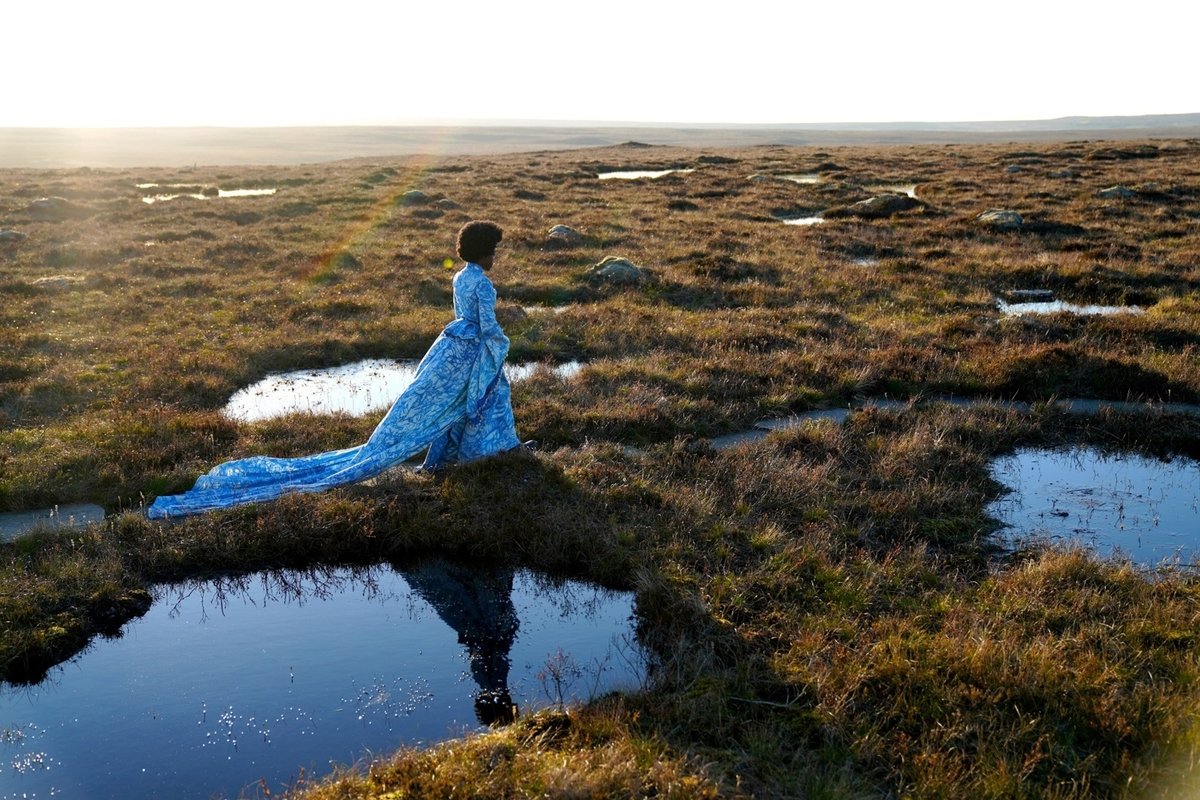
Looking North Through Art
In Collaboration with Scotland’s Future Series
In Scotland, the relevance of themes relating to landscape and energy (ethics) is difficult to overstate. Be it debates on the economy, job prospects and security, Scottish independence, climate change and other ecological crises, or national identity – landscape and energy occur frequently in mainstream discourses. Generally, approaches to those terms tend to focus on what landscape and energy are to “us”, in other words, how “we” can use them – often with the intention of generating, if not maximising economic profit.
In the wake of current ecological crises and impending collapse, many scholars argue that effective, large-scale environmental action requires not only changes in consumption patterns, but also deeper shifts in Western mindsets and attitudes towards what we call “nature”. The environmental humanities often speak from the so-called nature-culture divide, which governs particularly Western societies. “Nature” and “culture” are seen as dichotomous. Rather than understanding ourselves as part of nature, we see it as an “other”, laying the foundation for exploitative and subjugating practices with little regard for balance or longevity.
The many different understandings, or conceptions, of nature are perhaps one of the most common points of discussion in the environmental humanities; and indeed, when we consider possible definitions of nature, contradictions quickly emerge. One such tension is understanding nature or the natural as untouched or unchanged by humans – criteria which do not apply to most “natural” environments in Europe, in fact. For they have been changed and shaped for millennia, although in ways that may appear difficult to detect to non-experts. Straight rivers are often indicators of such interference, for example. We may find that most conceptualisations of nature in Western intellectual traditions serve specific purposes that are ultimately anthropocentric, that is human-centred. But one may come to realise that any concept of nature can only ever be a concept defined by its limitations. It can never fully grasp what we are trying to express with the word nature. In the end, nature isn’t necessarily something specific that corresponds to our, in this case, Western way of thinking about it – instead it just is. The way it is experienced and perceived will vary from person to person, as well as from species to species – indeed, from everyone with whom we share this planet, both human, non-human, more-than-human and everything in between.
Fig. 1 Sekai Machache, Light Divine Sky, 2021. Photography by Antanas Budvytis. Copyright and courtesy of the artist.
Considering the ecological crises we face on a global scale, it is important to reframe “our” often destructive and exploitative relationship with our environment and so-called “natural resources”. Opening up public discourses and knowledge production can contribute to that, in my view. At times, it can seem as if “knowledge” and “solutions” to engage with the environmental crisis come exclusively from the realms of natural science and technological innovation. Assigning epistemological authority to these fields is one of the many legacies of the European Enlightenment after which rationalising, categorising, and quantifying approaches were deemed more truthful, or factual. In recent years, however, there has been an increasingly vocal movement in academia and beyond that argues convincingly for the benefits of opening up academic epistemologies. For example, by including previously ignored knowledge, such as indigenous wisdom, that is often useful in addressing the complex challenges we all face.
It is with this in mind, that I, along with my two friends and colleagues Tori Champion and Emma Dodds, started the event series Looking North. As firm believers in the potential and value of interdisciplinary exchange, we wanted to bring together artists and nature writers from or in Scotland. Our intention was to facilitate stimulating dialogues that would be inspiring not only to the audience, but also to the speakers themselves. We also invited a number of local conservation groups whose work relates to the focus of our speakers. In this way, we hoped to share more practical approaches to the sometimes rather theoretical or abstract issues we explore. We thereby hope to convey to our audience the importance of opening up debates on environmental questions to include the perspectives of artists and writers as well. Access to and interaction with the arts is an important component of a healthy democracy, and the kind of society we hope to see flourish in Scotland and beyond. Rather than outsourcing such hopes to the future, we have tried to imagine a parallel present which we brought to life through Looking North. We are deeply grateful to the St Andrews Scotland’s Future Series without whose generous support this would not have been possible.
We are currently looking forward to a third series of conversations focusing on “care, healing & regeneration” and are excited about our wonderful line-up of speakers, including Hanna Tuulikki, Sophie Strand, Bathsheba Demuth, Mhairi Killin, Siobhan McLaughlin and Amy Liptrot.
To read the original blog post, please visit the Scotland’s Future Series website.
